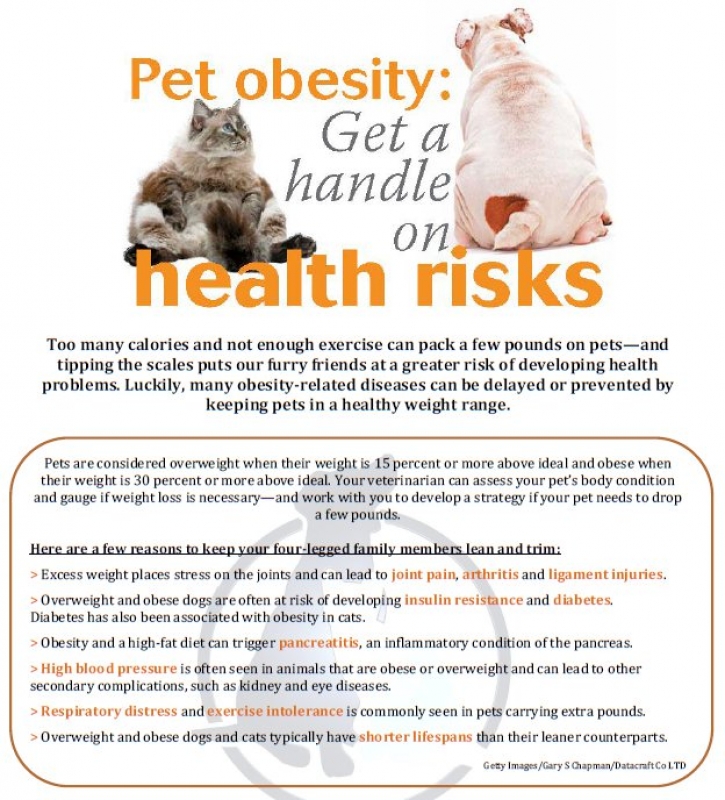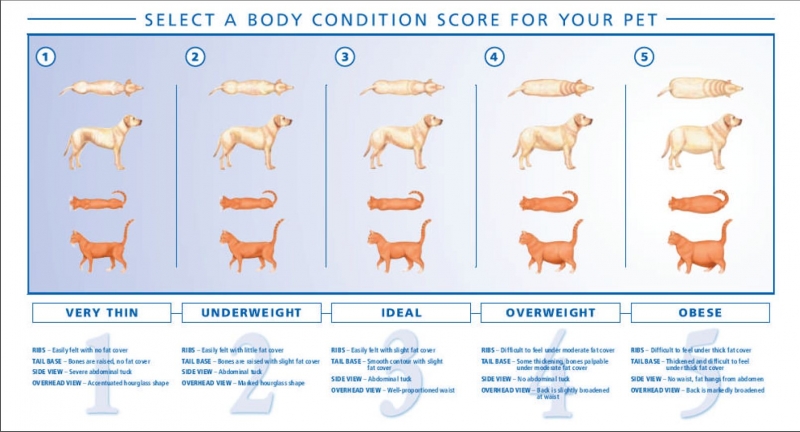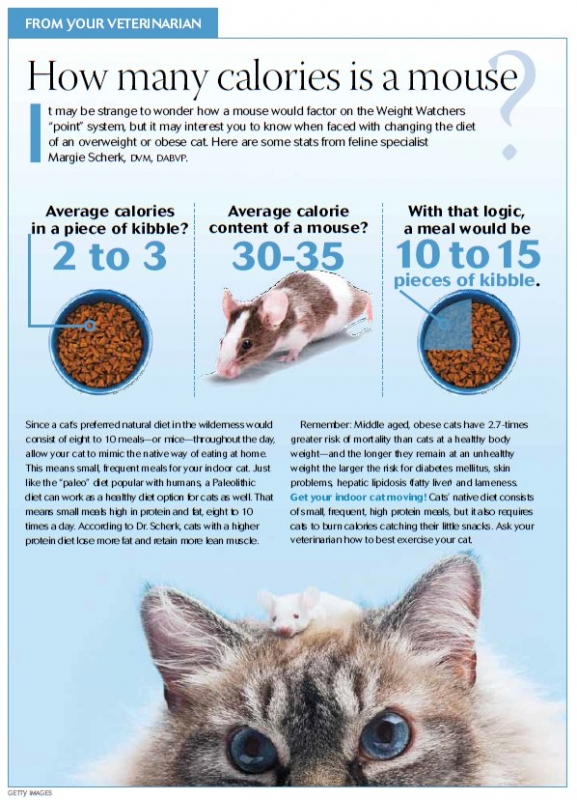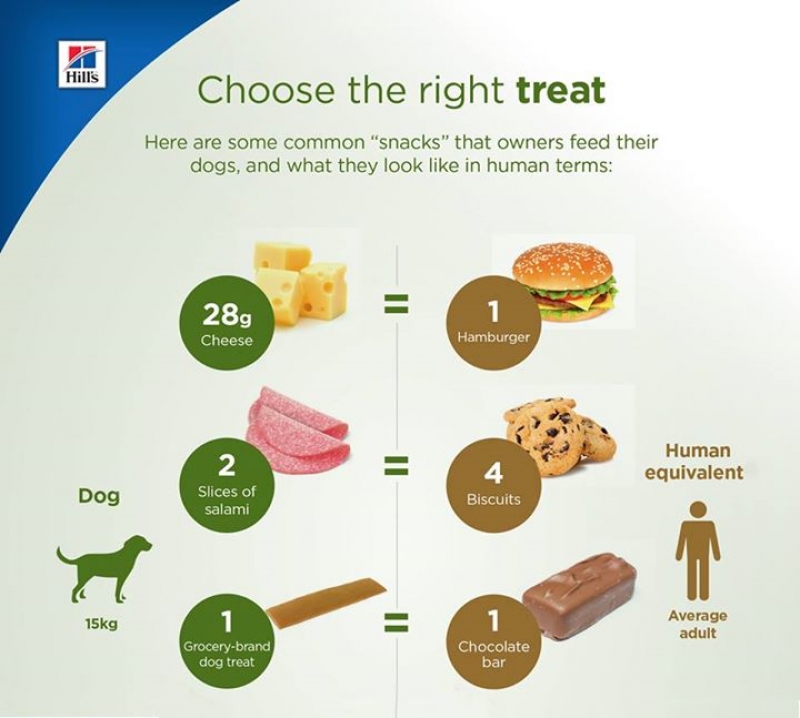Obesity
Obesity is pretty common in animals and can have both subtle and serious effects on your pet.
Obesity is more or less 100% human fault as we are usually the single source of calories for our animals. We will look at risks and consequences of obesity and how to recognise Body Condition which is the best way to monitor your pet's weight.
Body Condition Score
How can you tell your pet is overweight?
It's all about Body Condition Score. Each animal's diet should be tailored to keep animals around a BCS 3.
Take a look at the chart above to see where your pet belongs.
Cats
Let's look at cats. I think this pic is really cute and illustrates how little cats need. They are also grazers; in the wild they eat multiple small meals per day (mice, frogs, birds) as opposed to dogs who tend to be more 'gorge and starve' ie. catching large prey every couple of days.
It's reasonable to suggest an indoor cat would only require 4 to 6 'mice' per day as they are not exerting energy to hunt. However you can increase exercise by providing puzzle toys that drop food or engaging in a few short sessions of play each day. Just remember if you are using object/prey toys (fishing poles or lasers on the wall) make sure you end your session with a successful hunt by allowing the cat to 'catch' their target. By that I mean allowing the cat to attack the fishing pole or landing the laser on some food before you turn it off or your kitty will end up with frustration which he may take out on you.
Conclusion
And finally here's a couple of ways to achieve weight loss in your animals. It really comes down to intake vs expenditure so when you're trying for weight loss, intake must be less than expenditure. Obviously you can only limit intake to a point and this is why weight loss diets are formulated with more fibre to help your animal feel fuller with less calories. Exercise should be tailored to what your animal can manage (not boot camp) and what is maintainable in the long term.
Here is a chart from the RSPCA about dog treats.




